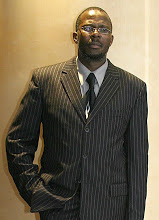AFRICAN Leaders must, despite the troubled political economies, turn Africa into its rightful position within the global markets,argue eminent African leaders .
Delivering a speech during the Africa Day celebrations by the African Union in Addis Ababa recently, the Chairperson of De Beers Nicky Oppenheimer called upon Africa to strengthen and impose its competitiveness in the global markets.
Oppenheimer implored the continent's leaders to use the global recesion crisis to its advantage, and argued that in order to catch up with the rest of the developing world, Africa needs much higher levels of growth.
"Greater flows of trade, capital and technology have lifted billions out of poverty since the end of the Cold War. A workable solution to the current crisis demands acting selflesly in global terms.
In order to survive the current world economic crisis, Africa needs to embrace globalisation and reduce its own protectionsim, to reduce our economic vulnerbility to crises and increase growth" says Oppenheimer.
Accordingly, he aserts, Africa has a vital role to play in global efforts to improve weakneses and imbalances.
"Africa has choices. Rather than riverting to greater protectionsim we have to continue to press ahead for greater openness.
Developed markets of Europe and North America should not be denied the possibility of benefiting from the potential inherent in the younger populations of Africa, 'and Asia' " he advises.
Openheimer's speech dovetails former Republic of South Africa President Thabo Mbeki's Guardian lecture he delivered to the Nigerian Institute of International Affairs in Lagos in 2003.
Mbeki had argued that self-reliance in the form of its own governing structures will enable Africa to confound its critics and prove their predictions wrong.
"Despite the harsh realities befalling the global political economies, as fellow compatriots we have a moral duty to turn Africa into a gift to humanity.
At a glance our post-independence period has seen the devaluation of our African unity and pan-ASfricanism, the devaluation of intellect and intellectual achievement and worst of all, the devaluation of African lives" noted Mbeki.
It must be highlighted that Mbeki alluded to these serious concerns some five years prior to the global economic meltdown.
He, even, made a famous qoute from Henry Kissinger's book 'Does America need a Foreign Policy'.
"Without the moral commitment of the American people and the international community, Africa's tragedy will turn into the festering disaster of our age. The African continent is a tragedy; it is also a challenge. Africa's variety inhibits concerted action; the scope of its crises nevertheless demands a significant response.
African countries have a high propensity for civil war. And if the tribal and ethnic loyalties extend across national frontiers, these civil wars will turn into international wars" writes Kissinger.
Mbeki counterposed Kissinger and pronounced that we have made a mockery of the gift of Africa's independence.
'What shall Africa hand over to the future? What gift shall we-the living- bequeath to the unborn?
We must together take the decision that we shall determine our future. The struggle for democracy is a struggle to enable every African to play a pivotal role in deciding the future of our countries and continent" said Mbeki.
Adds Oppenheimer, we need to assume a constructive role in global negotiations at multilateral forums such as the G20, and for Africa to make a greater contribution rather them asking for more aid.
Africa must not rely heavily on donor support as that will be bad news over the long term because the lack of liquidity in global markets will hit cash-strapped African markets, especially where private equity is needed for infrastructure investment.
"One big change about how we think differently about the future is that we should no longer assume a commodity super-cycle. Africa's future depends not only on how well we use commodity inflows, look at Botswana, which is a remarkable example of how to invest a commodity windfall wisely" warns Oppenheimer.
In the imediate term, he adds, African governments will have to manage the economic and political fallout of lower revenues from natural resources, trade and tax as well as smaller aid transferes.
Africa, he says, must renew efforts to build a domestic consensus on the necessity of economic reform, the importance of high growth rates and nation's integration into the global economy" argues eminent scholars in Africa.
In order to survive the current economic quagmire, Oppenheimer says Africa needs to strengthen and improve its competitiveness through lowering the costs of doing business which will simultenously reduce its economic vulnerability to crisis and increase her growth potential.
Mbeki concludes by arguing that the relationship of donor and recipient must become a thing of the past, and must be replaced by a partnership which must both respect our right to determine our future and impose a common obligation on our global partners what was mutually-accountable to each other.
And no better placed African nationalist than Ngugi wa Thiogo sums it better and so eloquently in his book 'Writers in Politics';
"And really we cannot expect that those who benefit from our crippled positions will come and say unto us 'Throw off those crutches and walk. But surely, it is unto us to have the will to say 'Away with all crutches of whatever make or model' " writes wa Thiogo.
African people, it is your time to turn Africa into a self-reliance as your integrate to global economy!
Saturday, May 30, 2009
Subscribe to:
Comments (Atom)


